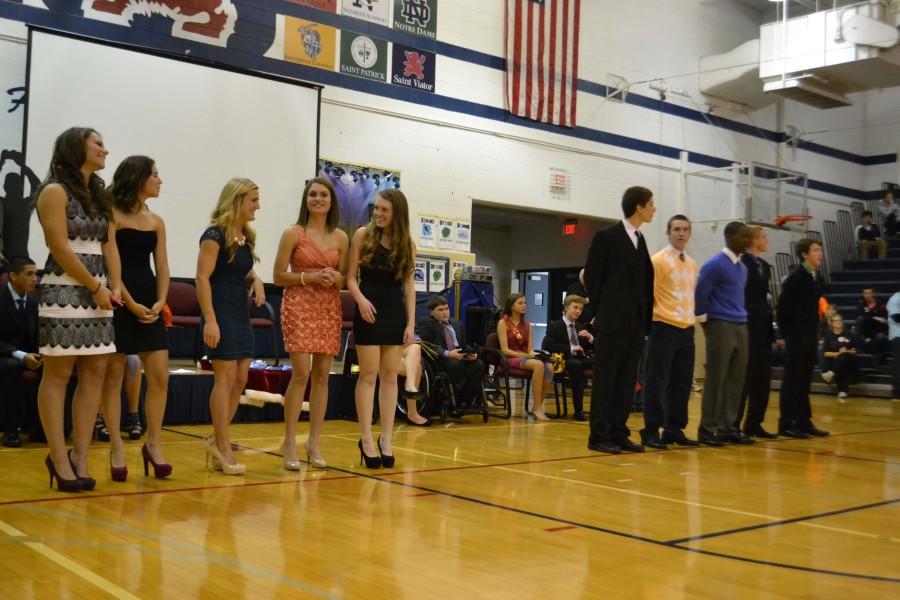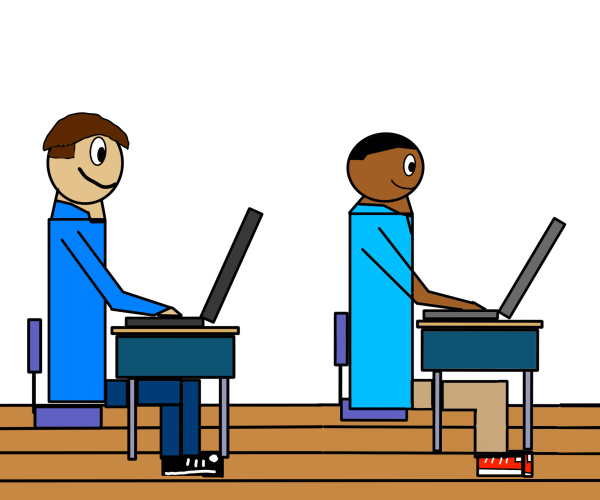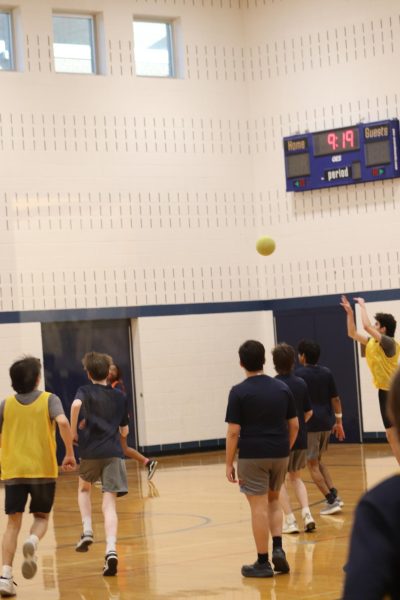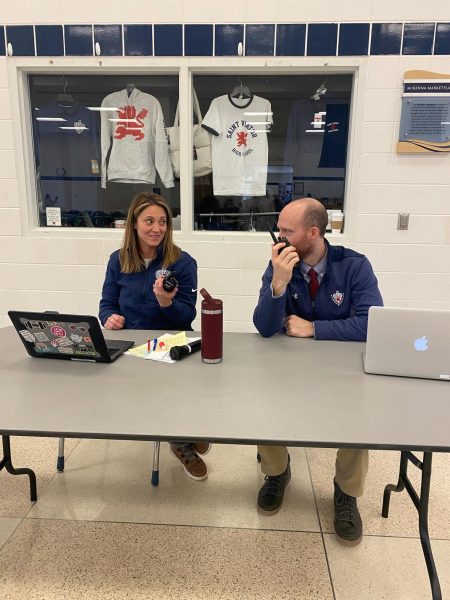Homecoming court nomination process revealed
Homecoming approaches with the speed of a lion hunting its prey—or rather a Saint Viator lion rushing for the lunch line in Querbes Hall—and so does one of its main attractions: homecoming court! While students traditionally vote for their favorite lion or lioness strutting the gym floor in their Sunday best, mystery shrouds the nomination process of the court, with faculty selecting the nominee pool for the students to vote from.
“I can’t remember nominating students, and I don’t remember why we got to this point or] when it changed,” said principal and lifetime lion Mrs. Eileen Manno. What sparked the transformation of the court?
“It changed about eight years ago, because we had some issues in the past with kids being mean spirited … it was also kind of a popularity contest,” said Mrs. JoAnne Francis, the woman behind the curtain, head of student council, and monarch of the homecoming kings and queens.
Now the process involves both faculty and students. To begin, the faculty, coaches, staff and club moderators nominate students based on set criteria and eligibility.
Despite changes made in the past, the standards for nominees remain untouched by the ravages of time.
“We look for kids that are well liked and respected by their peers and faculty, that are a good representative of their class, well-rounded, involved in activities and/or sports, spirited, and eligible in terms of academics and discipline,” said Mrs. Francis. “It has worked out very well for us over the last eight years.”
“I think it’s nice because they know the students on a different level than we do, and it’s a different point of view,” said sophomore Peter Beiswenger.
Chairperson of the religion department and bible teacher, Mrs. Barbara D’Urso, offers this point of view.
“I look for people of service, who are kind … good in class, and who are most importantly good people,” said Mrs. D’Urso. “I hope that they are … representative of who we are as people of faith, service, and goodness.”
Indeed, a coach on the field or a teacher in a classroom views students differently than their peers. A student’s eye view produces arguably more personal bias and oftentimes more emotional results than an impartial, faculty-produced observation based on set criteria.
“We know these people at a much more personal level than the faculty ever could. Faculty and student relationships are professional. Meanwhile, we the students interact as peers, as friends and as enemies,” said senior Colin Bromer. While faculty and students interact with varying equations of familiarity, the missing variable between nominees and their nominators remains unsolved.
After the list of nominees is completed the responses are compiled and the top nominees go on the ballot for students to vote for. They collectively vote for five boys and five girls to be part of the court. After these ten are selected, the students again vote for the finalist of their grade.
Is a shift towards increased student representation in order?
“I’m trusting the faculty since kids tend to nominate popular kids or the ones they know,” said Mrs. Francis. “I think… it works better this way.”
While popularity admittedly plays an integral part in nominations, not all lions feel that nomination power should rest entirely in the faculty’s hands.
“The kids should pick the nominees because it’s the kids that vote,” said junior Katie Kerrigan.
Views among faculty members differ as well.
“I would love to see change and the kids becoming more active in the nomination process,” said Mrs. Manno. “I would like to see a general election or nomination. Maybe have two or three candidates from each homeroom that are nominated by the students. Take two or three of the most votes from each homeroom … you’d still have about thirty candidates … then the class … votes for the winner.”
Along with suggesting more student representation in the nomination process, Mrs. Manno emboldens students to be the change they wish to see in the homecoming court.
“I encourage [students] to go to student council if [they] are concerned about the process. It would be a great thing for the kids to go to student council and say, ‘We should change this.’
For better or for worse, homecoming court champions the ambitions and spirit of the school and reflects what many students admire or wish to see in themselves.
“I don’t think I would ever be on homecoming court because I haven’t been on it in the past. I don’t think there’s a chance,” said junior Susie Carlson.
Mrs. Manno begs to differ.
“I can’t think of anybody in the school who would not be a candidate,” said Manno.
Your donation will support the student journalists of Saint Viator High School. Your contribution will allow us to purchase equipment and cover our annual website hosting costs.







